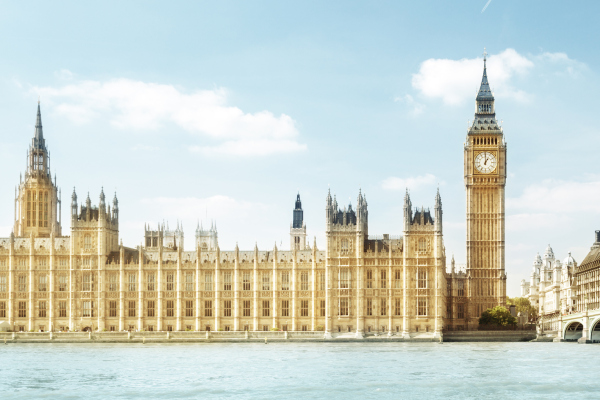This Children’s Mental Health Week we’re issuing a call for action to make a difference in millions of children’s lives.
Statistics released about children’s mental health so far this year have been stark.
There’s been a 39% increase in NHS mental health referrals among under-18s in a year; in some parts of England the waiting period for a first assessment is more than a year, and one in 4 teenagers aged 17 to 19 has a probable mental health issue.
More young people are struggling with their mental health and wellbeing – and they’re finding it harder to access professional support.
We have more than 19,000 members who are trained to work therapeutically with children and young people. They need to be part of the solution to the children’s mental health crisis.
Meeting the Children’s Minister
This month, we’ll be meeting the Minister for Children, Families and Wellbeing, Claire Coutinho MP to highlight the importance of investing in counselling, emphasising the skills and expertise of our members, and demonstrating how counselling provision should be part of mental health support teams in England.
We regularly have influential meetings with policy-makers and education professionals, brief MPs and work collaboratively with other organisations as well as speaking to members who work with young people.
Working across the UK
Our work extends across the UK, to Scotland, Wales and Northern Ireland too where statutory school counselling is in place. We want to ensure that even if budgets are cut, mental health remains at the forefront of funding.
We campaign for greater investment in and access to counselling for children and young people across the UK all year round, not just one week a year.
But for Children's Mental Health Week, we’ve listed five key points that are at the heart of our campaigning on behalf of children, young people and our members.
1. A paid counsellor should be available in every secondary school, academy and FE college
Scotland, Wales and Northern Ireland all have government-funded school counselling services. England does not.
The Government needs to ensure England is no longer lagging behind on provision of children’s mental health support.
2. Fully-funded early support hubs will give young people access to help at the earliest opportunity without an appointment or referral
These hubs would be open to all, inclusive and have a ‘no wrong door’ approach – and we want trained, paid counsellors to be a key part of them.
We’re pleased to be involved in the #FundtheHubs campaign calling for a network of these hubs to be opened across England.
3. Counselling can be a vital early intervention to help young people before they reach crisis point
Speaking to a counsellor can have a positive effect on young people’s confidence, resilience, sense of self-worth, family relationships, friendships, school attendance and academic achievement.
It can help prevent children go on to have mental health issues in later life.
This could ease the strain on the NHS and help those who may be suffering in silence.
4. School counselling is easily accessible, non-stigmatising and provides children with support in a non-medical setting
School counselling offers an accessible step care approach for children who often fall into the ‘missing middle’ – caught between what mental health support teams currently offer and higher tiered CAMHS services.
We know there’s a trained therapy workforce that can meet the demand if funding was available for universal access to counselling in all schools and colleges. Counselling can be part of a whole-school approach to mental health.
And parents agree that this is important.
82% of parents with children aged four to 17 believe counselling or psychotherapy should be freely available to all school children, throughout all schools, according to a survey we carried out with YouGov in 2022.
5. Counselling funding must be long-term to ensure children get the support they need and counsellors are paid for their skills and expertise
Even when counselling is funded, there are fears that when government budgets are cut, this support is among the first to be dropped.
Our school leaders’ survey found that 95% of those whose school or college offered counselling said demand for counselling had increased since the start of COVID-19 pandemic, but only 12% of them said funding available for counselling had increased.
70% of respondents whose schools had never offered counselling said it was because they don’t have the funding or budget.
We’re speaking to policy-makers across the four nations of the UK about how counselling can be funded long-term – and how government investment makes all the difference.
Share to raise awareness
We’ll be highlighting these points across our social media channels on Facebook, Twitter and LinkedIn during Children’s Mental Health Week which runs from 6 until 12 February, using the hashtag #ChildrensMentalHealthWeek.
Please share to help raise awareness of our calls.
Children's Mental Health Week
Launched in 2015 by Place2Be, Children's Mental Health Week is a nationally-recognised event that shines a spotlight on the importance of children and young people's mental health.
The Children's Mental Health Week website includes free resources and blogs to help explore children and young people's mental health.

School counselling in England campaign
We believe that a paid counsellor should be available in every secondary school, academy and FE college in England.

Working together to influence change - a quick guide
We need your support to help us influence change. Our guide contains suggestions for action that take just a few minutes but could have a significant impact.

Influencing decision makers
We work with with politicians and decision makers from all four nations to help them understand the positive changes that counselling can make to people's lives.
